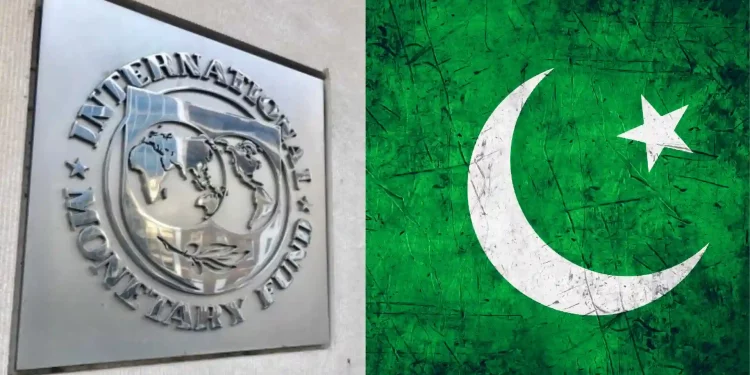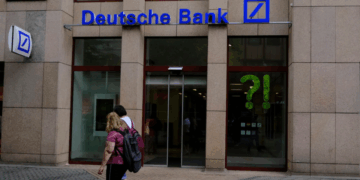People are chasing after trucks of food. Pharmacies have run out of essential medicines. The prices of goods are changing change on a weekly, sometimes daily, basis. Over 30 million people are homeless and in need of urgent aid. The currency is in freefall, dropping 15% in just 3 days. Terrorism is on the rise, with a bomb blast in Peshawar in January killing over 100 policemen.
Pakistan is in a dire state as its economic crisis deepens. The country of 230 million people has never been considered a powerhouse, but now the situation is spiraling out of hand, leaving millions of people at risk of food shortages, disease, and unemployment.
As Pakistan heads towards its 13th IMF bailout in 40 years, it is worth asking what the causes of the current economic crisis are and whether this bailout will be the one that finally solves Pakistan’s economic woes. The lessons may be pertinent for many other countries struggling with the global slowdown.
What Is the IMF, And Why Does It Bail Out Countries Anyways?
The IMF, or International Monetary Fund, is the financial wing of the United Nations. It was formed in 1945 to help countries rebuild from the devastation of World War II, with the stated mission of “working to foster global monetary cooperation, secure financial stability, facilitate international trade, promote high employment and sustainable economic growth, and reduce poverty around the world.” To this end, it also gathers and publishes detailed economic data for all the world’s countries.
In simple terms, it collects funds from various countries depending on their economic importance, with the USA being the largest contributor. It functions as the lender of last resort for countries experiencing some economic crisis. These loans usually come with the caveat that the country undertakes some structural reforms in its economy to prevent such a crisis from repeating.
Some of the reforms that the IMF might demand include balancing the budget (austerity), lifting trade restrictions, privatizing state-owned companies, currency devaluation, and anti-corruption measures. These reforms are generally proposed to ensure the country can pay back the debt, as well as to make sure that the crisis does not spread to the global system. However, the IMF has also been criticized for being insensitive to the needs of the poor, for American dominance, and for forcing some countries into a cycle of debt traps.
Why Pakistan Needs Another Bailout
Pakistan is now in a perfect storm of economic woes. While the crisis has been precipitated by the devastating floods it experienced in 2022, as well as the Russian invasion of Ukraine driving up global energy prices, they are eventually a culmination of deep-rooted problems in the Pakistani system.
The first of these structural problems is the high levels of inequality in the country. The semi-feudal nature of Pakistan has led to a situation where powerful landlords, army commanders, and business interests exert a huge influence on the country’s policies. This means that they extract huge amounts of resources from the country through rents, subsidies, and crony capitalism while the common man foots the bill. This has caused a situation where the country imported 2000 luxury cars while vital food and medicine were held up by a lack of foreign exchange (as reported by The Dawn).
This brings us to the second problem, the dependence of Pakistan on imports of food, medicines, energy, and manufacturing. The country imports much more than it exports (to the tune of $34 billion in 2021), and this has caused a massive shortage of dollars in the country with which to pay for these exports. The COVID-19 pandemic and the Russia-Ukraine War have only exacerbated the situation, which has stretched global supply lines and driven up prices of almost everything it imports. With the country having forex reserves of only 3 billion dollars, this is barely enough to cover three weeks of imports.
Another issue is the huge amount of debt that the country already owes. The country has a total debt of $126 billion, of which $22 billion is due this year. With debt servicing eating up around 40-50% of government revenue, this leaves very little for the country to spend on other vital issues like healthcare, education, infrastructure, and defense. The much-vaunted China-Pakistan Economic Corridor (CPEC) has failed to materialize any of its promised economic benefits and instead saddled the country with even more debt, much of it being opaque.
However, the real problem at the heart of all others is Pakistan’s politics. With the army controlling much of internal politics from the shadows and posts being handed out as sinecures to cronies, there is a severe shortage of independent and committed elected politicians to try and pass reforms. The political crisis last year, where Imran Khan was ousted as PM, and Shehbaz Sharif installed instead, as well as the surge in terrorism following the Taliban’s takeover of Afghanistan, has further destabilized the country and scared away investors and lenders.
The devastating floods last year were the last straw, causing more than $40 billion of damages, and displacing 30 million people, more than 10% of its population. The lackluster government response and reported inflation of 27% have pushed the country to the limit.
Will This Be the Bailout That Fixes Things?
Pakistan has a long relationship with the IMF. Since its founding in 1947, the country has been bailed out 22 times, but despite several restructuring deals, it is invariably back for another bailout in a few years. The question is, will this time be any different? The country urgently needs the next tranche of $1.2 billion to avoid default, but the IMF is holding back, citing concerns about the ability to repay.
The Pakistani government has already raised electricity tariffs, slashed energy subsidies, floated the currency, and raised interest rates to appease the IMF, but the question is will it be enough? That the country needs the loan is obvious, as it would also reassure other countries (such as Saudi Arabia and the UAE) to grant loans. But the IMF says it requires deep structural reforms that would be extremely painful to the country, especially in an election year. Will the pampered elite be willing to shoulder the costs in order to keep the country from defaulting? The outcome of the ongoing talks will carry the fate of an entire nation.
All statistics as reported by the Government of Pakistan and the IMF.

















